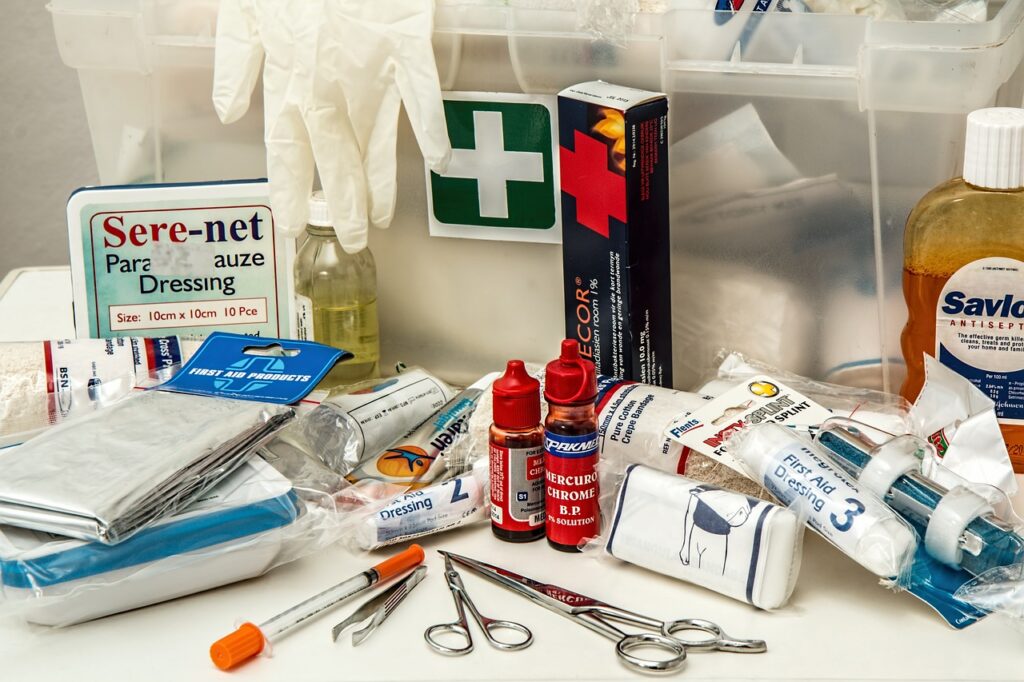Medical assistants play a vital role in today’s healthcare settings, performing a wide range of duties to ensure smooth operations. We aim to provide guidance on how to become a medical assistant and offer helpful tips for individuals interested in pursuing this rewarding career.
Understanding the Role of a Medical Assistant
A medical assistant is a healthcare professional who performs both clinical and administrative tasks to support healthcare providers in various settings. They are essential team members, ensuring smooth patient care and efficient operations in hospitals, clinics, and private practices.
When it comes to clinical duties, these professionals take patient histories, prepare patients for exams, and draw blood, among other tasks. They also perform administrative duties such as scheduling appointments, managing medical records, and handling billing and insurance matters. These varied responsibilities require medical assistants to be versatile and adaptable in their roles.
The work environment is diverse, with opportunities in hospitals, clinics, and private practices. They may be employed on a full-time or part-time basis, depending on the needs of the healthcare facility. This flexibility allows medical assistants to tailor their careers to their personal and professional goals.
Educational Requirements for Medical Assisting
Obtaining the proper education is crucial for aspiring medical assistants, as it equips them with the knowledge and skills needed to perform tasks effectively and professionally. Additionally, having the right educational background can open doors to increased job opportunities and career advancement.
There are two primary educational paths for medical assisting: certificate or diploma programs and associate degree programs. Certificate or diploma programs typically last between 9 to 12 months and cover the essential knowledge and skills required to become a medical assistant. Community colleges, vocational schools, and technical schools often offer these programs.
Alternatively, pursuing an associate degree in medical assisting can provide a more in-depth education, taking approximately two years to complete. These programs usually include general education courses in addition to medical assisting coursework, potentially making graduates more competitive in the job market. Associate degree programs can be found at community colleges and some vocational schools.
Regardless of which educational path is chosen, attending an accredited medical assistant program is crucial. Accreditation ensures that the program meets established industry standards and provides a quality education. The Commission on Accreditation of Allied Health Education Programs (CAAHEP) and the Accrediting Bureau of Health Education Schools (ABHES) are the two primary accrediting bodies. Prospective students should research and verify the accreditation status of any program they consider.

Certification and Licensing for Medical Assistants
Becoming a certified medical assistant (CMA) can offer numerous benefits, such as increased job opportunities and higher earning potential. Employers often prefer hiring CMAs, as certification demonstrates a commitment to professionalism and adherence to industry standards.
To obtain a medical assistant certification, individuals must first meet eligibility requirements, which typically include completing an accredited medical assisting program. Upon meeting these requirements, candidates can take the Certified Medical Assistant Exam offered by the American Association of Medical Assistants (AAMA). The exam covers various topics, including medical terminology, anatomy, and medical assisting procedures. To prepare for the test, candidates should thoroughly review the exam content outline and consider using study guides and practice exams.
In addition to certification, some states have specific licensing requirements for medical assistants. It’s essential for individuals to understand and follow these guidelines in their respective states. Staying informed about state-specific requirements ensures compliance with regulations and contributes to a successful medical assisting career.
Essential Skills for a Medical Assistant
Medical assistants must possess a range of clinical, administrative, and interpersonal skills to excel in their roles. Clinical skills include providing patient care, such as measuring vital signs and assisting with examinations and procedures. They also perform laboratory procedures, including collecting specimens and preparing samples for testing.
Administrative skills are equally important, as medical assistants are responsible for record-keeping and documentation, scheduling appointments, and managing patient flow within the healthcare facility. These tasks ensure smooth operations and contribute to overall patient satisfaction.
Interpersonal skills are crucial for these medical professionals, as they frequently interact with patients and healthcare team members. Effective communication is essential for obtaining accurate patient information and collaborating with colleagues. Additionally, medical assistants must demonstrate empathy and compassion when dealing with patients, as they often serve as a comforting presence during medical appointments.

Job Market and Career Outlook for Medical Assistants
The job market for medical assistants is promising due to various factors contributing to high demand. An aging population and increased focus on preventive care drive the need for medical assistants in healthcare settings. Additionally, certain geographic areas, such as urban centers and states with large elderly populations, experience a higher demand for medical assistants.
The career outlook for medical assistants is positive, with a projected growth rate significantly higher than the average for all occupations. Factors such as advancements in medical technology and an expanding healthcare sector contribute to job stability and security for medical assistants.
Opportunities for advancement exist within the medical assisting field, with some professionals pursuing specialized roles or continuing education to further their careers. Pursuing additional certifications or training in areas such as phlebotomy, EKG technology, or medical billing and coding can lead to increased job opportunities and career growth.
Tips for Launching a Successful Medical Assistant Career
Investing in professional development and continuing education is crucial for medical assistants, as it allows them to stay current with industry trends and best practices. Moreover, maintaining certification and licensure can contribute to a successful career in medical assisting.
Key skills for medical assistants include communication, attention to detail, and time management. These skills enable them to effectively interact with patients, healthcare providers, and administrative staff while ensuring accuracy and efficiency in their work.
Networking is another essential aspect of launching and maintaining a successful medical assistant career. Joining professional organizations like the American Association of Medical Assistants (AAMA) or the American Medical Technologists (AMT) can provide access to valuable resources, networking events, and professional development opportunities. Attending conferences and workshops can further enhance one’s knowledge and skills, while leveraging social media and online networking platforms can help expand one’s professional network.
Conclusion
Becoming a medical assistant involves understanding the role, completing an accredited educational program, obtaining certification, and adhering to state-specific licensing requirements. Focusing on professional development, honing essential skills, and building a strong professional network will help ensure a successful career in medical assisting.
If you’re passionate about helping others and making a difference in the healthcare field, pursuing a career as a medical assistant can be incredibly rewarding. We encourage you to take the necessary steps to achieve your goals and explore our resources at Pathways2Advancement for additional guidance and support on your journey.
